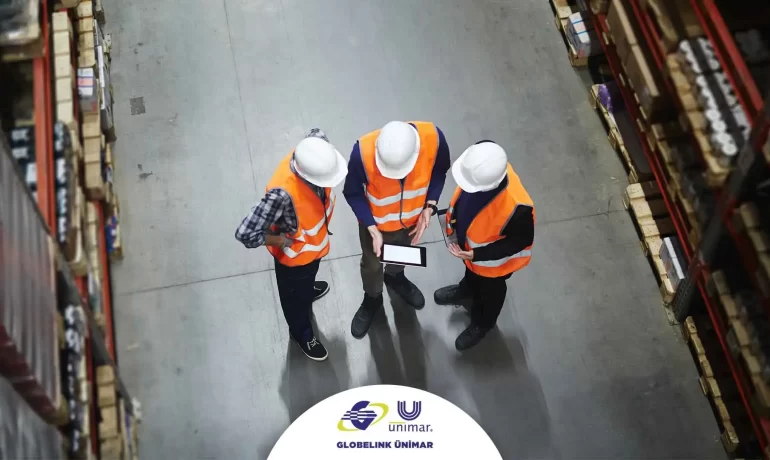
Due to the COVID-19 outbreak, the situation of non-fulfillment of contractual obligations should be evaluated separately for each concrete event, because the outbreak has different effects on each contract.
COVID-19, which affects the whole world, has undoubtedly been affected and continues to affect our country in many areas. One of these areas has been the logistics and transportation sector. Countries have closed their borders to other countries almost all over the world. As a result of the closing of the borders, trade, foreign trade and, naturally, logistics were negatively affected by this situation.
Considering all these, it will be inevitable that the responsibilities of the parties and the future of the contracts will be affected in the logistics sector.
This negative process that we are experiencing raises the problem of not being performed properly as required by the acts loaded with the existing contracts. The concept of force majeure emerges when the contractual actions due to COVID-19 epidemic disease cannot be fulfilled properly or at all.
Although the concept of force majeure is specified in Articles 136 and 138 of the Turkish Code of Obligations, a clear definition of this concept is not made within the context of the relevant articles. The definition, framework and limits of the concept of force majeure are left to the decisions and doctrine of the Supreme Court.
The fact that an incident, a situation, a fact of the event was carried out outside the control of the parties of the force majeure, the fact that such an event cannot be foreseen when the legal relationship is born or established, the consequences of such an event cannot be predicted even if it is envisaged, and its effects cannot be eliminated despite all measures and precautions and external it has to come from the factor.
In the decision numbered 11. HD 15.12.2014 2014 / 13893E. 2014 / 19777K, the force majeure is defined as, “Force majeure is an event, phenomenon or situation that means the fulfillment of liability or the use or demand of a right or legal opportunity or a legal advantage, partially or wholly, temporarily or permanently, removes the liability for this nature or delays its fulfillment, duration and term, or changes the nature of the responsibility, the fact that it is necessary and compulsory to redefine, re-extend or reinstate periods related to the exercise of a right or legal opportunity or a legal advantage, that it occurs despite all kinds of measures that people may take, even if they wait and anticipate, an external, extraordinary, extraordinary and habitual and permanent nature that exceeds the obligations of individuals to overcome their obligations to take measures and not to neglect.”
However, the Supreme Court accepted the epidemic as a force majeure in a 2017 decision. According to these definitions and general opinions in the doctrine, there is no doubt that COVID-19 will be accepted as a force majeure.
However, the situation in question must be evaluated differently in terms of each contract. If the COVID-19 is of a size that does not prevent the performance of the acts in the contract and there is no appropriate causal link between them, then COVID-19 will not be accepted as a force majeure for this contract.
Whether the COVID-19 virus will be considered as a force majeure is important for the future of contracts. However, if we consider that each contract contains its own specific provisions, we must once again state that it will be appropriate to evaluate the contracts within themselves.
The legal consequences of COVID-19 in different areas of law will be different. The logistics sector can be counted as one of the areas.
Unfortunately, the epidemic hazard caused by COVID-19 is still not over. Since judicial processes have stopped and trials have not started yet, a judicial decision has not yet emerged regarding the current situation. It is not possible to make a definite decision on whether the COVID-19 epidemic disease can be evaluated as a force majeure in terms of all contracts and how it will be applied if it is evaluated. However, COVID-19 and the process we are in once again demonstrated the importance of the force majeure item and its content in the contracts.
Therefore, this issue should be taken into consideration and regulated when contracts are made or existing contracts are revised. The results of the force majeure envisaged by the parties should also be evaluated by the parties and the relevant provisions should be included in the contract in detail. The special arrangements we have made regarding the force majeure within the contract will be especially important in terms of negative liability for the carrier in the future. If there is an unforeseen situation that prevents actual and physical transportation, according to articles CMR (Convention Marchandise Routier) 17/2 and TTA (Turkish Trade Act) 876 the situation can be considered as a force majeure and therefore constitutes a negative liability. In addition to this, the claim of negative liability based on force majeure may be in question in terms of prolonged transportation period, transportation commitments, guarantees and guarantees, pricing criteria and schedule.
In the event of a transport or delivery obstacle, while carrying out the transportation activity in the logistics sector, it is like an obligation in this process that the carrier receives instructions from the sender, especially after they notify the sender in the written notification. The carrier that fulfills this obligation would prove that necessary care has fulfilled. The sender may not have said anything or asked for the goods to be returned. If the goods are requested to be returned, the carrier acting in accordance with the instruction may have the right to receive the costs from the sender. In this case, the carrier will also have the opportunity to apply negative liability caused by force majeure. If the sender remains silent to the carrier’s written notification and does not give any instructions, the carrier will now be able to act in a way to find the most appropriate solution within the selective rights such as the carrier’s downloading the goods to a warehouse of his choice, selling and liquidating the good.
Artificial Intelligence is Both Changing and Transforming
Today, we can see the clues that we will
The Future of the Cargo Market is Shaped by e-commerce
The e-commerce industry has been growing rapidly since the



